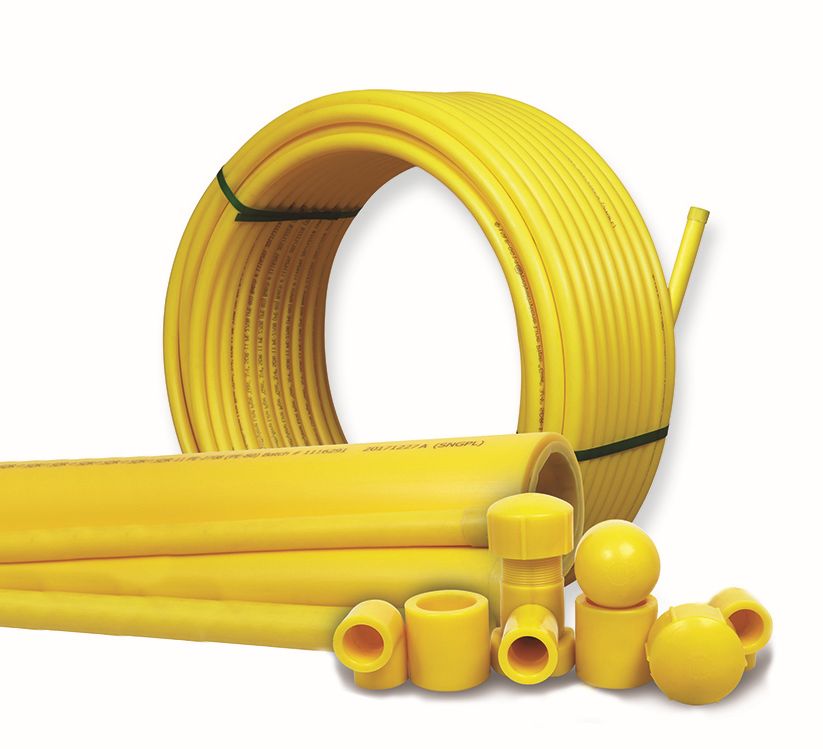Natural gas is one of the most commonly used energy sources in homes and businesses worldwide. It powers everything from heating systems to cooking stoves and water heaters. Behind the comfort and convenience of natural gas lies a network of natural gas pipes and fittings that ensure a safe and efficient supply of gas to your home. These systems are essential not only for the delivery of natural gas but also for the safety of your property.
In this article, we will provide an in-depth look at natural gas pipes and fittings, including their types, installation, maintenance, and safety considerations. We will also explore the importance of hiring professionals for the job and the advantages of opting for expert services. If you are in need of professional gas fitting services, make sure to check out Kingstree Plumbing’s Gas Fitting Services for reliable and safe installations.
1. Understanding Natural Gas Pipes and Fittings
Natural gas pipes and fittings form the backbone of your gas distribution system. Whether you’re installing new appliances, renovating your home, or upgrading your existing system, understanding these components is crucial to ensuring a smooth operation and compliance with safety standards.
Natural Gas Pipes
The natural gas pipes are the conduits through which gas flows from the supply source to your appliances. These pipes come in various materials and sizes, each designed for specific applications.
Common Types of Gas Pipes
- Steel Pipes Steel is one of the most commonly used materials for gas piping, especially in high-pressure systems. It is known for its durability and resistance to high temperatures and pressure. Steel pipes are typically used for both residential and commercial gas line installations.
- Copper Pipes Copper is used primarily for low-pressure natural gas systems. It is resistant to corrosion, making it ideal for interior installations. Copper pipes are commonly found in homes, connecting appliances to the gas supply.
- Polyethylene Pipes (PE) Polyethylene (PE) pipes are frequently used for underground installations because of their flexibility and resistance to corrosion. PE pipes are ideal for transporting gas over long distances, especially in rural areas.
- Galvanized Steel Pipes Although galvanized steel pipes were once widely used in gas systems, they are now less common due to the risk of internal corrosion. However, galvanized steel is still used for some outdoor and above-ground installations where corrosion is less of a concern.
Natural Gas Fittings
Fittings are essential components used to connect, secure, and route gas pipes. They help to change the direction of pipes, join different sections, or connect appliances to the gas line.
Types of Natural Gas Fittings
- Elbows Elbow fittings allow you to change the direction of a gas line by 45 or 90 degrees. These fittings are often necessary when routing gas lines around corners or obstacles.
- Tees A tee fitting allows you to split a gas line into multiple directions, making it possible to connect multiple appliances or devices to a single gas source.
- Couplings Couplings are used to join two sections of pipe, usually of the same size. These fittings are useful when extending a gas line or connecting two pipes of equal diameter.
- Unions Unions are designed for easy disconnection and reconnection of pipes. They are used when you need to install or remove sections of gas lines without the use of permanent tools or fittings.
- Adapters Adapters are fittings that connect pipes of different sizes or materials, such as connecting a copper pipe to a steel pipe. They ensure a secure, leak-proof connection between pipes of varying types.
2. Importance of Choosing the Right Gas Pipes and Fittings
Selecting the right type of natural gas pipes and fittings for your system is vital for ensuring both safety and performance. Using the wrong materials or improper fittings can lead to leaks, reduced gas flow, and even hazardous situations.
Why Material Matters
Each type of pipe material has its own unique properties, such as corrosion resistance, flexibility, and pressure tolerance. For example:
- Steel pipes are perfect for high-pressure applications but may corrode over time if not properly maintained.
- Copper pipes offer excellent corrosion resistance, making them ideal for low-pressure indoor installations.
- Polyethylene pipes are the best choice for underground installations due to their flexibility and resistance to corrosion.
When planning a gas installation, it is crucial to choose the right materials based on the type of environment, pressure requirements, and installation location. A professional plumber can help guide you in making the best choice for your needs.
3. The Installation Process of Natural Gas Pipes and Fittings
Installing natural gas pipes and fittings requires careful planning and knowledge of local building codes and regulations. The installation process should only be handled by licensed professionals to ensure safety and compliance with standards.
Step-by-Step Installation Process
- Design and Planning The first step in any installation is to design a layout for the gas system. This includes determining the correct pipe sizes, choosing the appropriate materials, and planning the route for the gas lines. A licensed plumber or gas fitter will also check local codes and regulations.
- Obtaining Permits Installing or modifying gas lines typically requires permits from the local municipality. This ensures that the installation complies with safety standards. A licensed professional will help obtain the necessary permits.
- Pipe Cutting and Assembly Once the permits are in place, the plumber will cut and assemble the pipes according to the design plan. This involves threading steel pipes, joining copper pipes, or assembling PE pipes for underground installations.
- Fitting Installation The plumber will then install the necessary fittings (elbows, tees, couplings, etc.) to create the desired path for the gas lines. Fittings must be securely tightened to prevent leaks.
- Connecting Appliances After the gas line is installed, the plumber will connect it to the appliances. This might include gas stoves, water heaters, or other gas-powered devices.
- Leak Testing Before the system is fully operational, the plumber will conduct a thorough leak test. This ensures that there are no gas leaks that could pose a safety risk.
- Inspection Finally, a building inspector may need to review the installation to ensure that it meets all safety codes and regulations. The inspector will verify that everything is installed properly and that the gas system is safe to use.
4. Maintenance of Natural Gas Pipes and Fittings
Maintaining your natural gas pipes and fittings is essential for keeping your system functioning smoothly and safely. Routine inspections and maintenance can help prevent costly repairs and dangerous situations.
Routine Inspections
Having your natural gas system inspected regularly by a licensed plumber ensures that the pipes and fittings are in good condition. During an inspection, the plumber will check for signs of corrosion, leaks, and other issues that could affect the performance of the gas system.
Leak Detection and Repair
Gas leaks are a serious concern and should be addressed immediately. If you smell gas or hear a hissing sound, evacuate the building and call a professional plumber. Professional leak detection methods, such as pressure testing and using leak detection tools, ensure that any leaks are identified and repaired quickly.
Cleaning and Clearing Debris
Over time, debris can build up inside gas pipes, especially if the system is not properly maintained. Regular cleaning helps ensure that gas flows efficiently and safely through the system. Blockages can also occur in gas lines, leading to reduced performance. A professional plumber will help clean and clear any blockages.
5. Why Hiring a Professional for Gas Line Installation is Essential
While installing natural gas pipes and fittings may seem like a simple DIY project, it is a job best left to professionals. There are several reasons why you should always hire a licensed plumber for gas installations:
1. Expertise and Experience
A professional plumber or gas fitter has the experience and knowledge required to design and install natural gas systems that meet industry standards and local safety codes. Their expertise ensures that the installation is done correctly and efficiently.
2. Safety
Handling natural gas requires caution and attention to detail. Incorrectly installed gas lines or fittings can lead to dangerous gas leaks, fires, or explosions. A professional plumber understands the risks and takes the necessary steps to ensure safety.
3. Compliance with Building Codes
Each municipality has its own building codes that govern gas installations. A licensed plumber will ensure that your installation meets these codes and that all necessary permits are obtained.
4. Long-Term Savings
While hiring a professional might seem like an added expense, it can actually save you money in the long run by preventing costly repairs, minimizing the risk of gas leaks, and improving the efficiency of your gas system.
6. Why Choose Kingstree Plumbing for Natural Gas Pipes and Fittings?
When it comes to installing, repairing, or maintaining natural gas pipes and fittings, Kingstree Plumbing is the name you can trust. We offer expert gas fitting services with a commitment to safety, quality, and customer satisfaction.
At Kingstree Plumbing, we specialize in both residential and commercial gas installations, ensuring that your system is up to code and functioning safely. Our team of licensed professionals is highly trained in the latest techniques and best practices for natural gas installations and maintenance.
Conclusion: The Importance of Professional Gas Fitting Services
In conclusion, natural gas pipes and fittings are crucial components of any gas system. Proper installation, regular maintenance, and adherence to safety standards are essential to ensure that your system operates safely and efficiently. Whether you need a new installation or repairs, it is always best to hire a licensed professional plumber for the job.
For natural gas pipes and fittings installation and service, trust the experts at Kingstree Plumbing. With years of experience and a commitment to excellence, we provide safe, reliable, and efficient gas fitting services in Sherwood Park and surrounding areas. Reach out to us today to ensure your gas system is in top condition!

